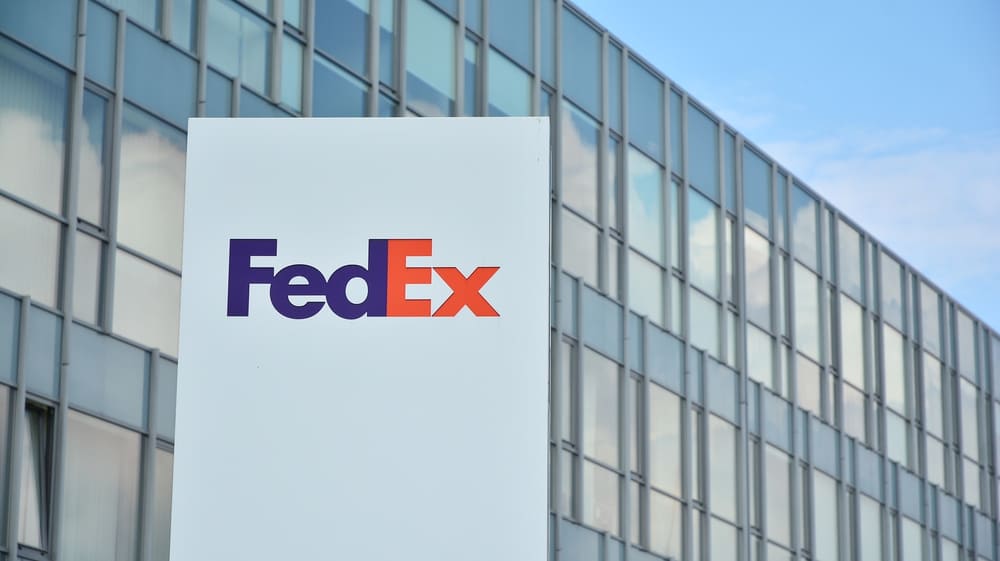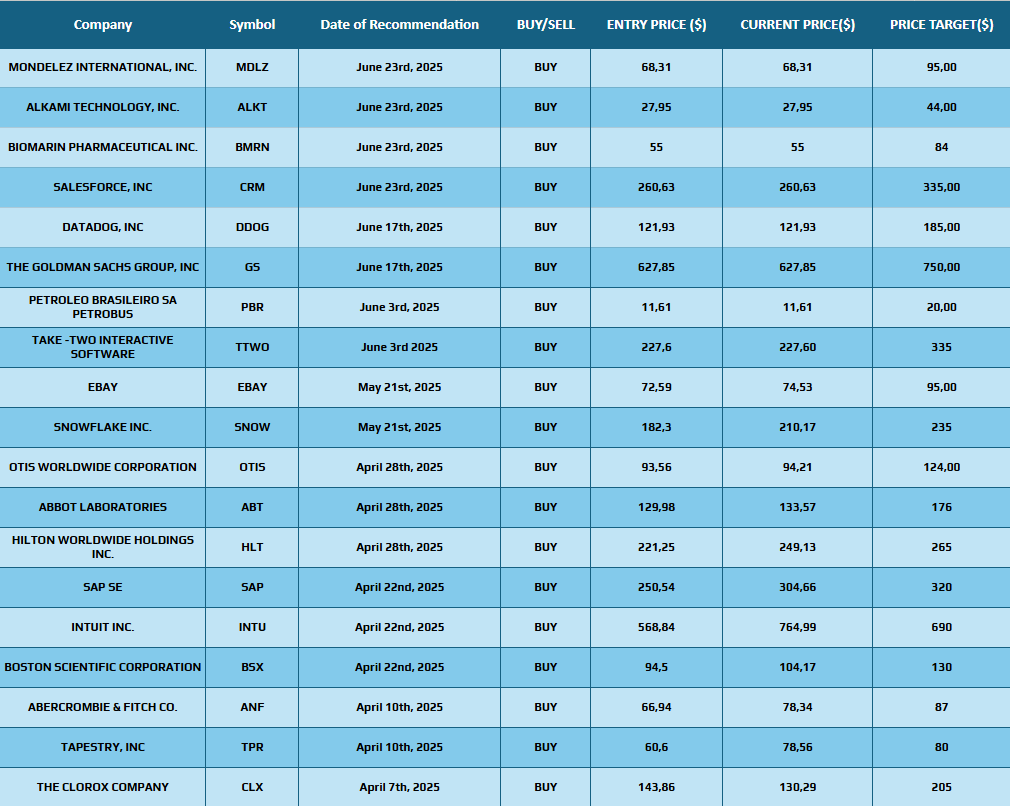
Date Issued – 25th June 2025
Preview
Markets grappled with a flurry of geopolitical and corporate developments. Oil dropped over 6% as ceasefire hopes between Iran and Israel lowered supply disruption risks. Meanwhile, China accelerated its de-dollarization agenda, expanding yuan-based financial tools as dollar sentiment weakens. In earnings, FedEx and Carnival beat expectations, with the latter raising its outlook. Chipmaker Ambarella surged 20% on sale rumors. However, risk remains high at sea – maritime insurers have begun denying coverage for U.S., Israeli and U.K.-linked ships in the Middle East. Investors now weigh solid corporate performance against fragile geopolitical stability and structural shifts in global finance.
Oil Slides 6% as Ceasefire Eases Supply Fears
Oil prices dropped for a second straight day, with WTI settling at $64.37 and Brent at $67.14, as investors bet on the durability of a ceasefire between Israel and Iran. The sharp decline follows Iran’s limited retaliation after U.S. airstrikes on its nuclear sites, with no damage to energy infrastructure. President Trump stated that China could continue purchasing Iranian oil – later clarified by the White House as not lifting sanctions, but referencing the Strait of Hormuz stability. The ceasefire appears to have reduced fears of a major supply disruption, pulling prices back to levels seen before the June 13 conflict escalation.
Investment Insight:
The market is signaling confidence that the geopolitical risk premium tied to the Iran/Israel conflict is dissipating. With oil now trading below $65, investors may shift focus back to fundamentals such as global demand recovery, U.S. inventory data and OPEC+ policy. However, the ceasefire remains fragile and any sign of renewed hostilities – especially near the Strait of Hormuz – could trigger rapid volatility. Energy investors should watch for potential short-covering rallies or policy shifts, especially involving China’s oil imports and any White House backpedaling on sanctions enforcement. For now, energy stocks may face short-term pressure as risk unwinds.
China Pushes Yuan Forward as Dollar Weakens
China is intensifying its efforts to internationalize the yuan as the U.S. dollar faces weakening global confidence. Beijing has expanded foreign investor access to domestic futures and options, launched digital yuan initiatives and encouraged yuan-based trade settlements and lending. While the yuan only accounted for 2.89% of global payments in May, recent policy moves aim to position it as a credible alternative to the dollar, particularly in Asia. However, concerns over transparency and rule of law remain barriers. The U.S. dollar still dominates global payments, but Beijing’s strategy signals a structural push toward de-dollarization and financial autonomy.
Investment Insight:
Investors should monitor the yuan’s evolving role in global finance, especially as geopolitical instability and U.S. policy uncertainty fuel dollar volatility. While China’s capital controls and regulatory opacity still limit its appeal, incremental reforms – including expanded market access and cross-border lending in yuan – suggest long-term ambitions for currency diversification. Rising institutional flows into CNY assets, as noted by State Street, could foreshadow a gradual shift in asset allocation strategies. For portfolio hedging, this trend merits closer attention – particularly for those exposed to U.S. assets, emerging markets or dollar-dependent commodities. Stay alert for FX policy signals from both Washington and Beijing.

FedEx Beats Q4, Plans $1B in New Cuts
FedEx reported stronger-than-expected Q4 2025 earnings, with adjusted EPS of $6.07 (vs. $5.84 expected) and revenue of $22.22B (vs $21.79B forecast). The company also announced it had completed its $4B cost-cutting initiative under the DRIVE program and now targets an additional $1B in savings in fiscal 2026. Despite the beat, shares fell 5% in after-hours trading due to slightly underwhelming guidance for Q1 2026 EPS. Revenue for the full fiscal year reached $87.9B. Volume growth in U.S. home delivery and lower capital expenditure point to improved efficiency, though international trade pressures—especially China/U.S. routes—remain a headwind.
Investment Insight:
FedEx’s aggressive cost optimization and positive volume trends reflect operational resilience, even amid sluggish global trade. While short-term guidance slightly missed EPS expectations, the company’s long-term focus on structural efficiencies and capex discipline offers a bullish setup for value investors. However, geopolitical friction and U.S./China trade policies remain risks to international revenue. As FedEx proceeds with its freight division spin-off and solidifies DRIVE savings, it could unlock additional shareholder value. Long-term holders may see upside once macro headwinds stabilize—especially with global logistics rebounding. Keep an eye on Q1 margins and progress on spin-off execution.
Carnival Rises on Earnings Beat, Raised Outlook
Carnival Corporation reported a strong Q2 2025, posting adjusted earnings of $0.35 per share—beating analyst estimates of $0.24 and record adjusted revenue of $6.3 billion. Net income surged to $565 million, up sharply from $92 million in Q2 2024. On the back of strong demand and brand momentum, the company raised its full-year outlook, now projecting a 40% increase in adjusted net income over 2024 and boosting EBITDA expectations to $6.9 billion. Carnival’s upcoming launch of Celebration Key in the Bahamas on July 19 is expected to further drive excitement and bookings.
Investment Insight:
Carnival’s impressive earnings beat and raised guidance reflect the cruise sector’s robust post-pandemic rebound, with pricing power and occupancy rates driving profitability. The 7% stock rally underscores investor confidence in long-term demand. The upcoming Celebration Key launch could unlock new revenue streams and brand value. Still, fuel prices and macroeconomic volatility remain risks. For investors seeking consumer discretionary plays with momentum and clear recovery trajectories, Carnival presents a compelling case—particularly as it moves closer to pre-pandemic margins and sustained net profitability.

Ambarella Jumps 20% on Sale Speculation
Ambarella shares surged 20.6%, marking their best day since 2021 – after Bloomberg reported the AI chip designer is exploring a potential sale. The company, known for its system-on-chip semiconductors and edge AI software, has reportedly held talks with bankers and attracted interest from private equity firms and major semiconductor companies, especially those seeking to enhance their automotive technology offerings. While no deal is imminent, the market reacted strongly to the news, driving a sharp rebound in a stock that had previously lost 18% year to date.
Investment Insight:
Ambarella’s strategic relevance in edge AI and automotive chips makes it a prime acquisition target, especially as legacy semiconductor firms look to expand in next-gen vehicle systems. The sudden 20% rally suggests strong speculative interest and potential deal value. However, the lack of a confirmed buyer or timeline adds volatility. For investors, the upside remains tied to M&A outcomes, with downside risks if a deal fails to materialize. Those with a risk appetite may see this as a short-term momentum opportunity, while long-term holders could benefit from a potential premium acquisition, should talks progress.
Insurers Refuse Coverage for U.S. – U.K. and Israeli Ships
Maritime insurance underwriters are refusing to cover vessels linked to the U.S., Israel or the U.K. in Middle Eastern waters, regardless of price, due to escalating geopolitical risks. Premiums have surged to as high as 0.5% of ship value, especially after recent U.S. strikes on Iranian nuclear sites. While a tentative ceasefire has been announced, market uncertainty remains high. Some owners are avoiding regional bookings altogether. Insurers are shortening required notification periods, reflecting heightened volatility. The Strait of Hormuz remains a key flashpoint, with risk appetite influenced by political tensions and China’s continued oil trade with Iran.
Investment Insight:
The shipping insurance turmoil underscores how geopolitical instability can sharply raise operational risks and costs in global trade routes. Investors should closely monitor shipping companies with exposure to these regions, as well as marine insurers adjusting premiums. Persistent uncertainty may lead to booking declines, margin pressures, or shifts in global freight flows – all of which could impact earnings for logistics and transport firms with high Middle Eastern activity.
Conclusion:
Investor sentiment is navigating a complex mix of corporate strength and geopolitical risk. Strong earnings from FedEx and Carnival indicate robust consumer and logistics activity, but escalating marine insurance constraints and rising Middle East tensions underscore fragility in global trade routes. China’s strategic push for yuan internationalization further signals a recalibration in currency power dynamics, while Ambarella’s potential sale highlights sectoral interest in AI and automotive chips. With macro headwinds and regional volatility in flux, markets remain in a state of cautious rotation – selectively favoring growth, hedging geopolitical exposure and watching monetary and energy signals with heightened scrutiny.
Upcoming Dates to Watch:
- June 27th: U.S. Core PCE Price Index
- July 4th: Senate vote on Republican + debt ceiling bill
- July 8th: China Non-Manufacturing PMI
Find below some of our Buy/Sell Recommendations. Balfour Capital Group is a distinguished global boutique investment management firm with $350 million AUM and over 1000 Clients.

Disclaimer: This post provides financial insights for informational purposes only. It does not constitute financial advice or recommendations for investment decisions.




